As parents, getting a child to help with chores can sometimes feel challenging, but it doesn’t have to be. Involving your children in household tasks helps keep your home tidy and teaches them valuable life skills, responsibility, and teamwork.
Imagine having to chase your children around because you want them to finish their chores. That could be very hectic and draining. So, here are 10 fun and effective ways to get your child involved with chores around the house without any stress, yelling, or chasing them around.
1. Make It a Game
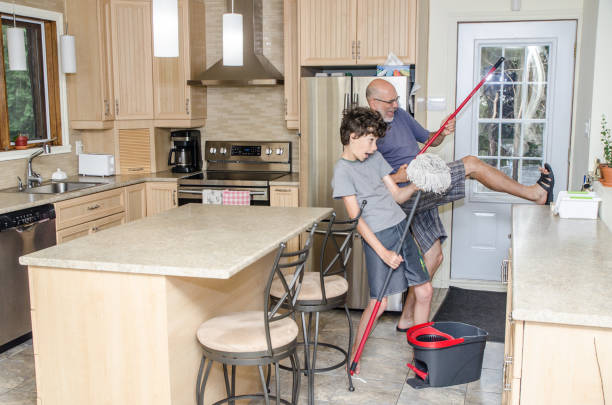
Turning chores into fun activities, like creating a chore chart with colorful stickers and rewards for completed tasks. You can also set a timer and see who can clean up the fastest, turning tidying up into a race. This helps the children work with ease and have fun doing their chores.
2. Use Positive Reinforcement

Children who are praised for completing their chores are always eager to do more. So always make it a point to celebrate their efforts. Praise your child for their hard work and let them know you appreciate their help. Offer small rewards like extra playtime or a special treat when they complete their chores.
3. Start Young
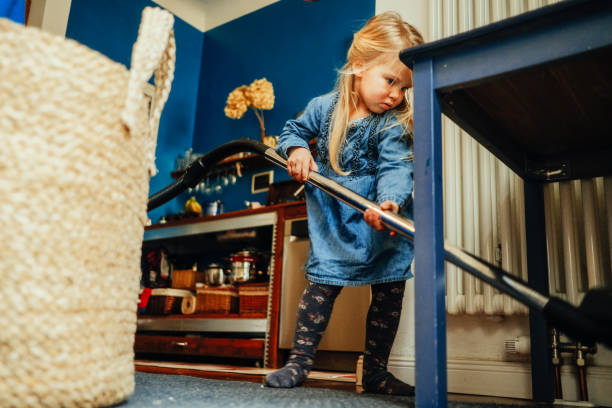
There is a saying that goes, “The early bird catches the early worm,” and it is important to practice early involvement. This will help your children get used to the chores and get involved. Make sure you introduce chores at a young age with simple tasks like putting away toys or matching socks. Make chores a regular part of their routine so they become accustomed to helping out.
4. Make It a Family Affair

It is advisable to always work in a team as a family during house chores. This improves and adds fun to the chores for the children because teamwork always yields productivity. Set aside time for the whole family to work on chores together. It’s a great way to bond and get things done faster. Play music and dance around while cleaning to make it more enjoyable for everyone.
5. Assign Age-Appropriate Tasks

Tailor chores to the abilities of your children. Give younger children simpler tasks like dusting low surfaces or watering plants. Older kids can handle more complex chores like folding laundry, vacuuming, or helping with meal prep. This will help the children know the tasks they are all assigned and make sure they complete them without making any complaints.
Also, read about:
6. Teach by Example
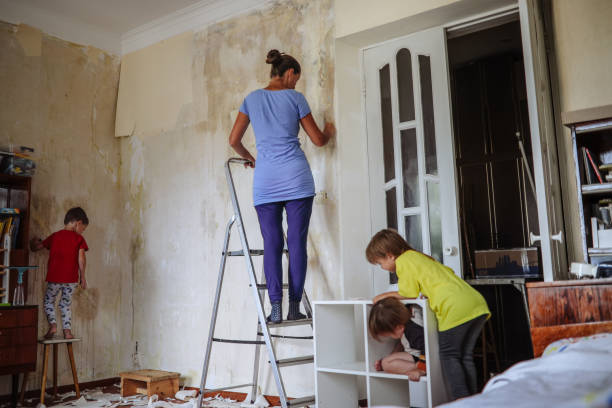
A proper way to also involve your children in chores in the house is to lead the way. Show your children how to do each chore step-by-step and explain why it’s important. Work alongside them initially to ensure they understand and feel confident doing the task on their own. If they see you working, they’ll surely want to help with whatever chores you’re involved in and extend a hand of help.
7. Create a Chore Rotation

In my house, for instance, children take turns washing the dishes and tidying the kitchen. This makes chores amongst them easy and solves so many conflicts and misunderstandings. Just make sure you keep it interesting by rotating chores weekly so your child doesn’t get bored with the same tasks. This also helps them learn a variety of skills and understand the different responsibilities that go into maintaining a household.
8. Make It Educational

Learning and teaching the children through chores incorporates lessons into chores, such as counting items while setting the table or learning about recycling while sorting trash. Use chore time to teach life skills like cooking, organizing, and time management. This takes the children a long way because they get used to the work and adapt to it.
9. Set Clear Expectations
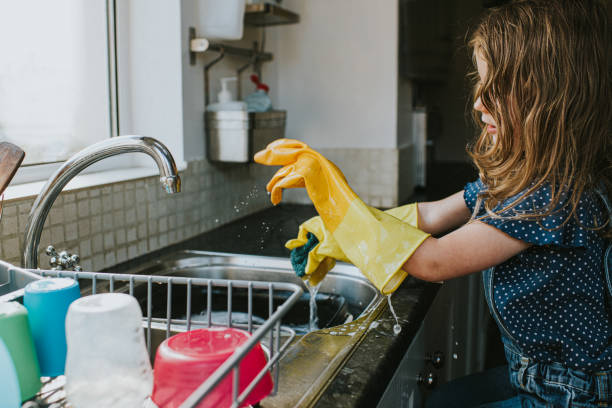
Consistency is key, clearly explain what each chore entails and how often it needs to be done. Create a visual schedule or checklist to help them keep track of their responsibilities. While at this, make sure you attach a form of punishment to it, such as completing chores before going to play, going out, or even having some siesta.
10. Encourage Independence
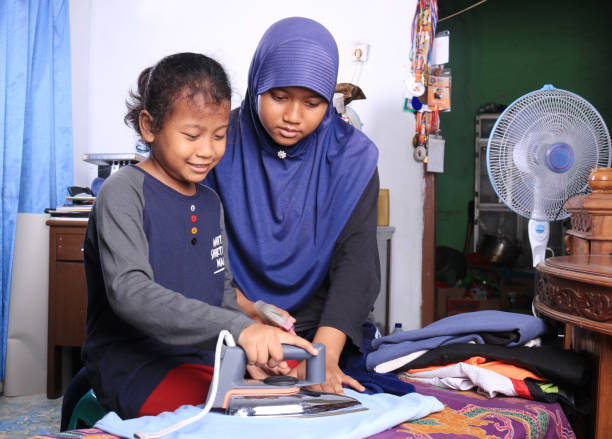
Empower your child to be responsible in their chores. Allow your child to take ownership of their chores and complete them in their own way, as long as the job gets done. Give them opportunities to take on new responsibilities as they grow older and more capable.
Involving your child in household chores doesn’t have to be a struggle. By making chores fun, setting clear expectations, and using positive reinforcement, you can turn daily tasks into valuable learning experiences. Not only will your home stay tidier, but your child will also develop important skills that will serve them well into adulthood.
Mary Dickson
Mary Dickson is a versatile professional with over a decade of experience driving innovation at the intersection of technology, marketing, and female empowerment. She is currently the Business Development Manager at GP Business Consulting serving as Lead Consultant with CBI -Netherlands Enterprises Agency. With a background in marketing she’s worked in different roles cutting across HR, Sales, Business Development and Marketing over the past 14 years in the Tech space. She has a keen interest in Digital marketing especially social media and has spearheaded over 50 training programs geared towards training women led business owners and young girls, equipping them with digital and simple tech skills. She has also consulted for companies and institutions across sectors, helping them optimize content, creation, ad management, customer engagement, and automation. She is the powerhouse behind the WeMompreneurs community, which supports mothers in business through training, networking, consultancy in digital tools. Mary is the co-author The Fruit of the Spirit (a children's book). She holds a BSc.Management with Computing and a MSc. Strategic Management and Leadership. She is the Vice Chair , Women’s Affairs of the Ghana Chamber of Young Entrepreneurs and a member of the Advisory Board of Prime HER ( NGO)




